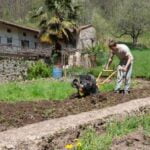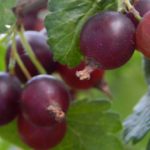Proper watering is crucial for vegetable gardens, and knowing when to water vegetables gardens is essential for their health and productivity. Both under-watering and over-watering can have a significant impact on the growth and development of vegetable plants. Understanding the varying water requirements of different types of vegetables and identifying signs of dehydration and over-hydration in plants are key factors in maintaining a healthy garden.
Soil type, drainage, climate, time of day, and frequency of watering are all factors to consider when determining the right time to water your vegetable garden. Additionally, best practices such as deep watering versus frequent shallow watering, using mulch to retain moisture, and proper watering techniques can help reduce stress on plants and promote healthy growth.
Efficient watering tools and techniques such as soaker hoses, drip irrigation systems, and rainwater harvesting can also contribute to maintaining optimal soil moisture for your vegetable garden. Monitoring moisture levels in the soil, recognizing signs that indicate adjustments are needed in the watering schedule, and adapting your routine based on plant growth and weather changes are important steps in achieving a thriving garden.
Understanding the Watering Needs of Different Vegetable Plants
When it comes to vegetable gardening, it’s essential to understand that different types of vegetables have varying water requirements. Understanding these needs and being able to identify signs of dehydration or over-hydration in plants is crucial for the overall health and productivity of your garden. Here are some key points to consider:
- Varying Water Requirements: Different vegetables have different water needs. Leafy greens like lettuce and spinach require more frequent watering, while root vegetables like carrots and radishes need consistent moisture but can be susceptible to rot with excessive water. Understanding the specific needs of each type of plant will help you tailor your watering routine accordingly.
- Signs of Dehydration and Over-Hydration: It’s important to be able to recognize when your plants are not getting enough water or are being overwatered. Common signs of dehydration include wilting, curling leaves, and dry soil, while over-hydration can lead to yellowing leaves, mold growth, and waterlogged soil. Monitoring your plants for these signs will help you adjust your watering schedule as needed.
By understanding the individual watering needs of the various vegetables in your garden and staying vigilant for signs of dehydration or over-hydration, you can ensure that your plants receive the right amount of water for optimal growth and yield. Paying attention to these factors will help you develop a personalized watering schedule that meets the specific requirements of each type of vegetable in your garden.
Factors to Consider When Determining the Right Time to Water
Soil Type
The type of soil in your vegetable garden plays a significant role in determining the right time to water. Sandy soils drain quickly and may require more frequent watering, while clay soils retain moisture for longer periods. Understanding the composition of your soil can help you make informed decisions about when to water.
Drainage
Proper drainage is essential for preventing over-watering and waterlogged conditions that can harm vegetable plants. Ensure that your garden beds have adequate drainage to avoid water accumulation.
Moisture Retention
Consider using organic materials such as compost or peat moss to improve moisture retention in the soil. These amendments can help maintain consistent moisture levels, reducing the frequency of watering and promoting healthier root development.
Temperature
Hotter temperatures result in increased evaporation, leading to faster drying of the soil. During hot weather, it may be necessary to water more frequently to compensate for this loss of moisture.
Humidity
High humidity levels can slow down evaporation, affecting how quickly the soil dries out. In humid conditions, monitoring the moisture levels becomes crucial to avoid over-watering.
Time of Day and Frequency of Watering
Best Time to Water
Watering early in the morning is generally recommended as it allows plants to absorb moisture before the heat of the day. Evening watering should be avoided as it can lead to prolonged leaf wetness and increase the risk of fungal diseases.
Frequency of Watering
While some vegetables may require daily watering during hot weather, others may thrive with less frequent watering. Understanding the specific needs of each plant type is essential for establishing an effective watering schedule.
Best Practices for Watering Vegetable Gardens
Proper watering is essential for the health and productivity of vegetable gardens. One key practice to keep in mind is the benefits of deep watering versus frequent shallow watering. Deep watering encourages strong root growth as it allows the water to penetrate deeper into the soil, reaching the plant’s root system. On the other hand, shallow watering may lead to weaker root systems, making plants more susceptible to stress during dry periods.
In addition to deep watering, using mulch in vegetable gardens can help retain moisture in the soil and reduce the need for frequent watering. Mulch also helps regulate soil temperature and suppresses weeds that compete with vegetable plants for water and nutrients. Organic mulches like straw, wood chips, or compost can be applied around the base of plants to help conserve moisture.
When it comes to proper watering techniques, it’s important to avoid causing water stress on plants. This means distributing water evenly and avoiding excessive runoff that can lead to nutrient loss and soil erosion. Watering at the base of plants rather than from overhead can also prevent foliage diseases caused by prolonged leaf wetness.
| Watering Practice | Benefits |
|---|---|
| Deep Watering | Encourages strong root growth |
| Mulching | Retains moisture, regulates soil temperature, suppresses weeds |
| Watering Techniques | Avoids water stress on plants, prevents foliage diseases |
Tools and Techniques for Efficient Watering
When it comes to efficiently watering vegetable gardens, there are a variety of tools and techniques that can help ensure that plants receive the right amount of moisture. By using the appropriate watering methods, gardeners can optimize water usage and promote the healthy growth of their vegetable plants. Here are some essential tools and techniques for efficient watering:
- Soaker Hoses: Soaker hoses distribute water directly to the base of plants, minimizing evaporation and ensuring that the roots receive adequate moisture. These hoses are especially beneficial for deep-rooted vegetables like tomatoes and peppers.
- Drip Irrigation Systems: Drip irrigation systems deliver small, precise amounts of water to the soil through a network of tubes and emitters. This method helps conserve water by reducing runoff and evaporation, making it an efficient choice for watering vegetable gardens.
- Watering Wands: Watering wands allow gardeners to target specific areas with a gentle, controlled flow of water. This tool is particularly useful for delicate vegetables or seedlings that require careful watering.
In addition to utilizing the right tools, matching the watering technique to the specific needs of the plants is crucial for efficient watering in vegetable gardens. Some vegetables may require more frequent watering, while others thrive with less frequent but deeper watering. Understanding the individual requirements of different types of vegetables is essential for successful cultivation.
Sustainable watering methods such as rainwater harvesting can also contribute to efficient water usage in vegetable gardens. Collecting rainwater in barrels or other containers allows gardeners to use natural precipitation as a resource for irrigating their plants. By incorporating these tools and techniques into their gardening practices, individuals can ensure that their vegetable gardens are watered effectively while minimizing waste.
Monitoring and Adjusting Watering Schedule
When it comes to maintaining a healthy vegetable garden, monitoring and adjusting the watering schedule is key to ensuring that your plants receive the right amount of moisture. By understanding how to check soil moisture levels and recognizing signs that indicate the need for adjustments, you can effectively optimize your watering routine.
Checking Soil Moisture Levels
One important factor in monitoring the watering schedule is to regularly check the moisture levels in the soil. This can be done by inserting a finger into the soil to feel for dampness or by using a moisture meter. For most vegetables, the top 6 inches of soil should be kept consistently moist but not waterlogged. On hotter days or during dry spells, more frequent watering may be necessary.
Signs of Over-Watering and Under-Watering
It’s essential to keep an eye out for signs that your plants are either over-watered or under-watered. Wilting, yellowing leaves, stunted growth, and fungal diseases can indicate over-watering, while drooping leaves, browning at the edges, and slow growth can indicate under-watering. Being observant of these symptoms can help you make timely adjustments to your watering schedule.
Adjustments Based on Plant Growth and Weather Changes
As your vegetable plants grow and weather conditions fluctuate, it’s important to adjust your watering frequency and duration accordingly. Young seedlings may need more frequent watering compared to mature plants with established root systems. Similarly, during periods of high temperatures or drought, increasing the frequency of watering may be necessary to prevent water stress on your vegetables. Conversely, during cooler or rainy seasons, less frequent watering may be sufficient to maintain optimal soil moisture levels.
By incorporating these monitoring techniques and being proactive in adjusting your watering schedule as needed, you can ensure that your vegetable garden thrives with proper hydration throughout its growth stages.
Watering Considerations in Different Seasons
Proper watering is essential for the health and productivity of vegetable gardens, and this need becomes more crucial when factoring in the changing seasons. Each season presents its own set of challenges and considerations when it comes to watering vegetable plants.
During the summer months, hot and dry conditions can lead to increased water evaporation from the soil, causing plants to become stressed and wilted if not adequately hydrated. In this season, it is important to water vegetable gardens deeply and less frequently to promote stronger root growth and reduce the risk of surface evaporation. Additionally, watering in the early morning or late evening can help minimize moisture loss through evaporation.
Conversely, rainy seasons bring a different set of challenges for vegetable gardeners. Excessive rainfall can lead to oversaturation of the soil, which can result in root rot and other issues for plants. During periods of consistent rain, it is essential to adjust your watering schedule accordingly by reducing frequency or allowing for proper drainage to prevent waterlogging.
Managing water levels during rainy seasons is crucial for preventing potential damage to vegetable plants. Lastly, you must also consider winter’s frozen ground that often leads to dry soil. It is important not forgetting about it since even though the temperatures are low, it still needs a minimum amount of water per week so that plant roots don´t die due lack of moisture.
Understanding these seasonal variations in watering needs can go a long way towards ensuring the health and success of your vegetable garden year-round. By being mindful of these considerations, you can develop a personalized watering schedule that caters to the specific requirements of your plants during each season.
Conclusion
In conclusion, proper watering is essential for the success of vegetable gardens. Throughout this article, we have explored the varying water needs of different vegetable plants, factors to consider when determining the right time to water, best practices for efficient watering, tools and techniques for effective irrigation, monitoring and adjusting watering schedules, and considerations for different seasons.
It is evident that understanding the specific requirements of each plant and the environmental conditions are crucial in maintaining the health and productivity of a vegetable garden.
It is important for gardeners to develop a personalized watering schedule based on their specific garden conditions. By considering factors such as soil type, climate, plant growth stage, and weather changes, gardeners can ensure that their plants receive adequate moisture without risking water stress or damage. Consistent monitoring of soil moisture levels and signs from the plants can help in adjusting the watering schedule as needed.
In essence, a well-maintained vegetable garden begins with proper watering practices. By prioritizing hydration needs and implementing sustainable techniques, gardeners can promote healthy growth and high yields in their vegetable plants. Ultimately, consistent and attentive watering is key to a thriving and productive vegetable garden.
Frequently Asked Questions
Should I Water My Vegetable Garden Every Day?
Watering your vegetable garden every day may not be necessary and can actually harm your plants. It is important to pay attention to the moisture levels in the soil and adjust your watering schedule accordingly. Overwatering can lead to root rot and other plant diseases, so it’s better to water deeply but less frequently.
Should You Water Garden Morning or Night?
The best time to water your garden is in the morning, as this allows the plants to absorb the moisture before the heat of the day evaporates it. Watering in the evening can create a damp environment that promotes fungal growth. Additionally, leaves that remain wet overnight are more susceptible to disease.
How Many Minutes Should I Water My Garden?
The amount of time you should water your garden depends on a variety of factors such as soil type, weather conditions, and the specific needs of your plants. Generally, it’s best to give your garden a deep watering for an extended period rather than a light sprinkle every day.
However, be sure to monitor how long it takes for water to penetrate the soil and adjust your watering duration accordingly.

If you’re looking to get into vegetable gardening, or are just looking for some tips on how to make your current garden better, then you’ve come to the right place! My name is Ethel and I have been gardening for years. In this blog, I’m going to share with you some of my best tips on how to create a successful vegetable garden.





